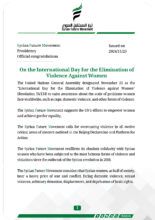Lawyers: Role and Importance

Introduction:
Lawyers are professionals specialized in law, authorized to practice the legal profession. A lawyer performs several vital roles within the judicial system, including:
- Legal Advisor: Providing legal advice to individuals and companies, explaining their legal rights and obligations.
- Advocate: Representing clients in courts and defending their rights and cases.
- Mediator: Striving to resolve legal disputes peacefully and assisting in reaching amicable settlements.
A lawyer may specialize in a specific legal field, such as criminal law, civil law, or corporate law.
Historical Context:
The legal profession is one of the oldest in human history, closely tied to the existence of organized societies and the laws that govern them. Lawyers have long been the voice of the oppressed, and their defense of rights has been a cornerstone in building just societies.
The origins of the legal profession date back to ancient times when individuals specialized in interpreting laws and defending others’ rights. In early civilizations like Egypt and Babylon, scribes and judges carried out these tasks.
In ancient Greece, the concept of lawyering became more structured, with specialized advocates defending the accused in courts.
During the Roman era, the profession advanced significantly, with renowned lawyers like Cicero, considered one of Rome’s greatest orators.
In the Islamic era, jurists and judges interpreted and applied Islamic law, acting as the lawyers of their time.
With the evolution of modern societies and the proliferation of laws, the legal profession has grown immensely. Today, there are various legal specialties, such as criminal law, civil law, and corporate law.
Additionally, bar associations have emerged to regulate the profession and protect lawyers’ rights.
Lawyers play a vital role in modern society, undertaking a wide range of tasks, including:
- Providing legal advice: Lawyers assist individuals and companies in understanding their legal rights and obligations, offering guidance to resolve their legal issues.
- Legal representation: Lawyers represent their clients in courts and advocate for their rights and cases.
- Drafting contracts: They draft various contracts, such as sales agreements, employment contracts, and others, ensuring their legality and accuracy.
- Dispute resolution: Lawyers strive to resolve legal disputes amicably through negotiation or arbitration.
- Legislation development: They contribute to the development of laws and regulations by providing their opinions and proposals to the relevant authorities.
Importance and Status:
The legal profession is considered one of the fundamental professions in any society due to the role of lawyers in protecting human rights by defending the oppressed and marginalized. They also ensure the fair and equitable rule of law by representing clients in courts.
Moreover, lawyers contribute to fostering trust in the judicial system through their professionalism and efficiency in fulfilling their role.
It can be said that lawyers play a vital role in building just and advanced societies. They are the guardians of rights, the makers of justice, and essential partners in achieving sustainable development.
The lawyer’s role is not limited to the practical and legal aspects but extends to profound philosophical dimensions! A lawyer is not merely an executor of legal procedures but a bearer of the banner of justice, a seeker of truth, and a defender of rights and freedoms. Their work intersects with fundamental philosophical concepts such as justice, truth, and rights.
Historically, the legal profession has been associated with the concept of justice. Lawyers defend rights and strive to balance the interests of disputing parties. Philosophically, justice is tied to the concepts of equality and fairness—values that humanity seeks to uphold. Lawyers endeavor to apply these values in practice by defending their clients’ rights and ensuring fair trials for them.
The lawyer’s role extends beyond defending their client to uncovering the truth. In any legal case, there are multiple facets of truth, with each party claiming to possess the complete truth. Through evidence analysis and argument construction, lawyers aim to uncover objective truth and present it to the judge to reach an appropriate decision.
The significance of lawyers’ roles in protecting rights and freedoms emerges as one of the most crucial values humanity strives to safeguard. Lawyers play a pivotal role in this regard as primary defenders of individuals’ rights, whether political, social, or economic. Through their work, lawyers contribute to strengthening the rule of law and protecting society from injustice and tyranny.
Furthermore, the lawyer’s role goes beyond serving their clients’ interests; it includes assuming social responsibility. Lawyers can contribute to societal development by offering free legal consultations and engaging in volunteer work.
It can be concluded that the lawyer’s role transcends being merely a legal profession to becoming a noble mission aimed at achieving justice and protecting rights. Lawyers serve as guardians of human conscience and architects of a better future.
On an international level, lawyers play a critical role in safeguarding human rights and protecting justice. They are a cornerstone in enforcing international laws and act as defenders of the weak and the oppressed.
The importance of lawyers in the international context is highlighted by:
- Protecting human rights: Lawyers contribute to protecting a wide range of human rights, from the right to life and liberty to the right to a fair trial.
- Enforcing international laws: They work to implement international laws and treaties related to human rights, such as the Universal Declaration of Human Rights and the International Covenant on Civil and Political Rights.
- Combating violations: They expose human rights violations, document them, and take legal action to hold perpetrators accountable.
- Providing legal assistance: Lawyers offer legal assistance to victims, helping them obtain compensation for the harm they have suffered.
- Raising awareness: They work to raise public awareness about the importance of human rights and international laws, promoting a culture of respect for the law.
Examples of the role of lawyers in international cases include:
- Defending the rights of prisoners: Lawyers work to ensure that prisoners receive humane treatment and are protected from torture and abuse.
- Combating discrimination: They defend the rights of minorities, ethnic groups, women, and children, fighting all forms of discrimination.
- Prosecuting war criminals: Lawyers participate in prosecuting war criminals, demanding accountability for their crimes.
- Defending human rights defenders: They defend human rights advocates who face persecution and arrest.
As it appears, we see that lawyers play a crucial role in building just and democratic societies, as they represent the first line of defense for human rights. Supporting lawyers and providing a safe environment for them to practice their profession is an essential condition for achieving justice and equality.
The Syrian reality:
Lawyers in Syria have a long and diverse history, having played pivotal roles in shaping society and the legal system. Their status and responsibilities have changed over time, influenced by the political and social transformations the country has undergone. The history of the legal profession in Syria dates back to ancient times, where there were individuals specialized in interpreting laws and defending the rights of others in ancient Syrian civilizations. Over time, this profession evolved and was influenced by the civilizations that ruled the region, such as the Roman, Islamic, and Ottoman civilizations, followed by the French mandate period. During this time, there was a significant development in the legal profession, including the establishment of the Bar Association and the regulation of the profession.
Lawyers in Syria have played an important role in defending national rights and protecting public interests. After Syria’s independence, the legal profession saw continuous development, with many lawyers emerging as leaders in political and legal life.
Challenges and difficulties:
The legal profession, like other professions, faces multiple and diverse challenges ranging from professional, social, and political difficulties. However, Syrian lawyers face additional challenges due to the exceptional circumstances their country is experiencing.
The general challenges faced by lawyers include:
- Rapid legal developments: The fast-paced evolution of legislation and laws requires lawyers to constantly keep up with changes, which increases the burden of study and research.
- Specialization: With the growing complexity of legal cases, specialization in a specific legal field has become essential, limiting the lawyer’s ability to handle all types of cases.
- Competition: Competition among lawyers is increasing, pushing them to offer better services at competitive prices.
- Professional ethics: The profession faces challenges related to professional ethics, such as bias and corruption.
The challenges faced by Syrian lawyers, as observed from our analysis, are as follows:
- The Syrian crisis: The Syrian crisis has led to the deterioration of economic and social conditions, negatively impacting the work of lawyers.
- Legal violations: Syria is witnessing widespread violations of law and human rights, making the work of lawyers dangerous.
- Armed conflicts: Many lawyers have been subjected to arrest, torture, and even death because of their work.
- Forced displacement: The conflict has displaced millions of Syrians, affecting lawyers’ ability to practice their profession.
- Corruption: The spread of corruption within judicial institutions negatively impacts the course of justice, making it difficult for lawyers to defend their clients’ rights.
- Lack of resources: Syrian lawyers suffer from a lack of financial and training resources.
- Change in the nature of work: The nature of legal work in Syria has changed significantly due to the crisis, with a focus now on human rights cases and armed conflicts.
- Difficulty accessing justice: Courts face significant difficulties in performing their work, which affects the speed of case resolutions.
- Lack of stability: Political and security instability impacts the work of lawyers, making it difficult to operate under such challenging conditions.
According to these challenges, working on mechanisms to address them is essential, such as cooperating with international organizations and lawyers in other countries to gain support and training, as well as continuing to develop their skills through ongoing education and qualification. Additionally, forming networks for solidarity and mutual support is important, along with playing an active role in legal awareness within the community.
Thus, Syrian lawyers face significant challenges, but they continue to work with determination to achieve justice and protect human rights.
The positives of empowering the role of lawyers in Syria:
Empowering the role of lawyers in Syria represents a crucial step towards building a state of law and enhancing the sovereignty of rights and freedoms that we aspire to in the Syrian Future Movement. This was emphasized in our organizational office papers, especially the paper titled “The Syrian Future Movement and the Characteristics of the State.” From this perspective, we look at the positives that result from this as follows:
On the individual and societal level:
- Protection of rights: Empowering lawyers contributes to protecting the rights of individuals, whether political, social, or economic rights, reducing violations and strengthening trust in justice.
- Guaranteeing fair trials: The presence of competent and independent lawyers ensures that defendants receive fair trials and that the law is applied equally to all.
- Facilitating access to justice: Empowering lawyers helps facilitate citizens’ access to the judiciary and obtain the necessary legal assistance.
- Promoting a culture of law respect: Lawyers contribute to raising legal awareness among community members, promoting a culture of respect for the law and the judiciary.
- Conflict resolution: Lawyers help resolve disputes peacefully, contributing to social stability.
On the level of the state and institutions:
- Building a state of law: Empowering lawyers is a fundamental pillar in building a state of law, as they contribute to the development of legislation and laws, ensuring their fair application.
- Enhancing transparency: The presence of independent lawyers contributes to promoting transparency and accountability within government institutions.
- Protecting national interests: Lawyers can defend national interests in international forums and protect the sovereignty of the state.
- Attracting investments: A strong and independent judicial system helps attract foreign investments and encourages economic growth.
Empowering the role of lawyers in Syria, as we see it, is an investment in the future of the country, as it contributes to building a just and civil society that respects human rights.
Negative Aspects in the Legal Profession and Their Impact on Their Positive Role:
Despite the vital role that lawyers play in society, there are some negative aspects that may negatively affect their performance and threaten their positive role. These negatives vary from one community to another and from one period to another, but they share some common general aspects, including:
- Corruption: Some lawyers may become involved in corrupt practices, such as bribery and manipulating the judiciary, leading to a loss of trust in the profession.
- Bias: Personal or political bias may affect a lawyer’s judgment in cases, resulting in biased rulings.
- Deception: Some lawyers may resort to deception and misrepresentation to mislead the court or the opposing party, harming the profession’s reputation.
- Exploiting Clients: Some lawyers may exploit their clients’ ignorance or difficult circumstances to gain unlawful financial benefits.
- Negligence: Some lawyers may neglect their professional duties, negatively impacting their clients’ interests.
The Negative Aspects Faced by Syrian Lawyers Specifically, as We See Them:
- Political and Security Conditions: The Syrian crisis greatly impacts the work of lawyers, as they face threats, arrest, and torture due to their work.
- Lack of Resources: Syrian lawyers suffer from a lack of financial and training resources, limiting their ability to provide quality legal services.
- Political Interference: Syrian lawyers are subjected to political interference in their work, reducing their independence and neutrality.
- Corruption: Corruption is widespread in Syrian judicial institutions, negatively affecting lawyers’ work and making it difficult to achieve justice.
- Difficulty Accessing Justice: Syrian courts face significant challenges in performing their duties, affecting the speed of case resolution.
In our opinion, these negative aspects lead to a loss of trust in the legal profession, reducing the number of people seeking lawyers for legal assistance. These behaviors tarnish the image of the profession in general, associating it with corruption and bias. Often, they negatively affect individuals’ right to a fair trial and may even contribute to perpetuating injustice and inequality.
Conclusion:
In the Syrian Future Movement, we carry a clear vision towards the need for legal reform and empowerment of justice. Our scientific office has made contributions that clarify our vision, particularly in the study we published on the Movement’s official website titled “Corruption and Nepotism in Syria.” We also emphasize the crucial role of lawyers in building democratic and just societies, and we call for the protection of their rights and the provision of a safe environment for them to practice their profession. This is also stressed by the United Nations through its emphasis on the necessity of providing legal assistance to citizens, especially the vulnerable groups among them.
Therefore, we recommend the following to empower the positive role of lawyers in Syria:
At the Syrian National Level:
- Judicial Reform: Strengthen the independence of the judiciary, ensure the integrity of judicial procedures, and provide a suitable working environment for judges and lawyers.
- Amendment of Laws: Review and update the laws related to legal practice to align with international human rights standards and simplify legal procedures.
- Protection of Lawyers: Ensure the protection of lawyers from any form of threat or assault, and provide sufficient guarantees for them to perform their duties freely and independently.
- Strengthening the Role of the Bar Association: Support the role of the Bar Association in representing lawyers and protecting their rights, and enhance its capacity to provide legal services to citizens.
- Development of Legal Education: Develop curricula in law schools to equip graduates with the necessary skills and knowledge to practice the profession, and encourage scientific research in the field of law.
- Providing Training Opportunities: Provide continuous training opportunities for lawyers on the latest developments in law, and enhance their ability to handle complex cases.
At the International Level, we recommend:
- International Support: Provide international support to the Syrian government in its efforts to reform the justice sector, and offer the necessary technical and financial assistance.
- Pressure on Conflict Parties: Pressure all conflicting parties in the Syrian conflict to respect the rule of law and protect human rights, including the right to access justice.
- Providing Legal Aid: Offer legal assistance to Syrian citizens affected by the conflict, and provide support to human rights organizations working in Syria.
- Human Rights Monitoring: Monitor and document human rights violations in Syria, and hold those responsible accountable.
Finally, empowering the role of lawyers is a fundamental element in building a state of institutions and law in Syria. It contributes to achieving transitional justice and enhancing trust in the judicial system. It also helps protect human rights and strengthen the rule of law, which contributes to achieving stability and development in Syria, and this is what we strive to achieve and support.
Presidency office
Dr. Zaher Ihssan Baadarani
Article
Syrian Future Movement (SFM)






